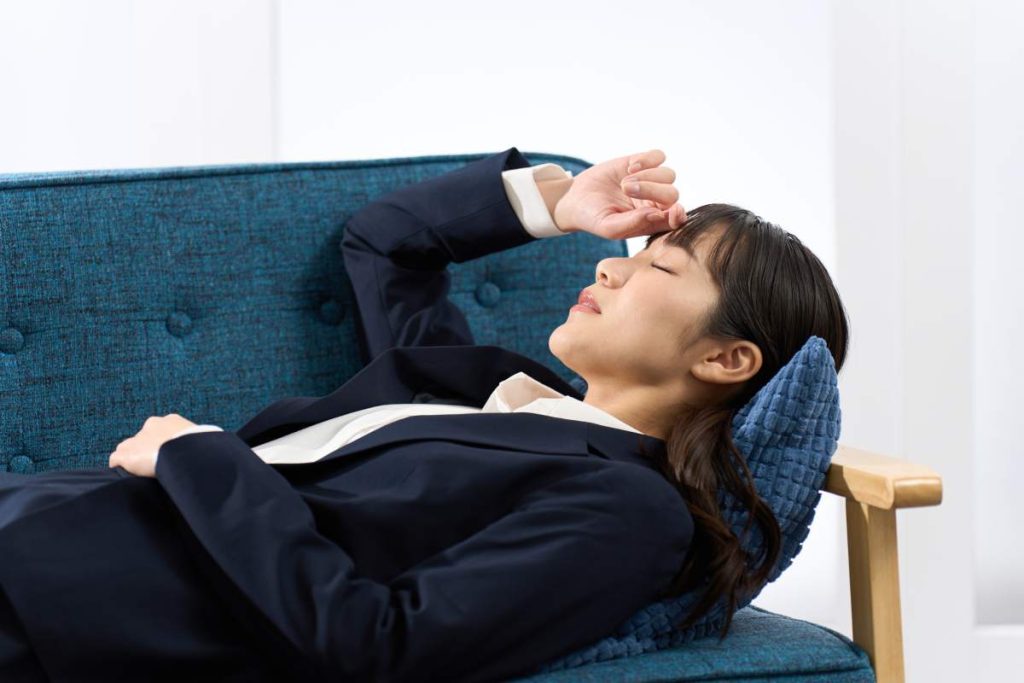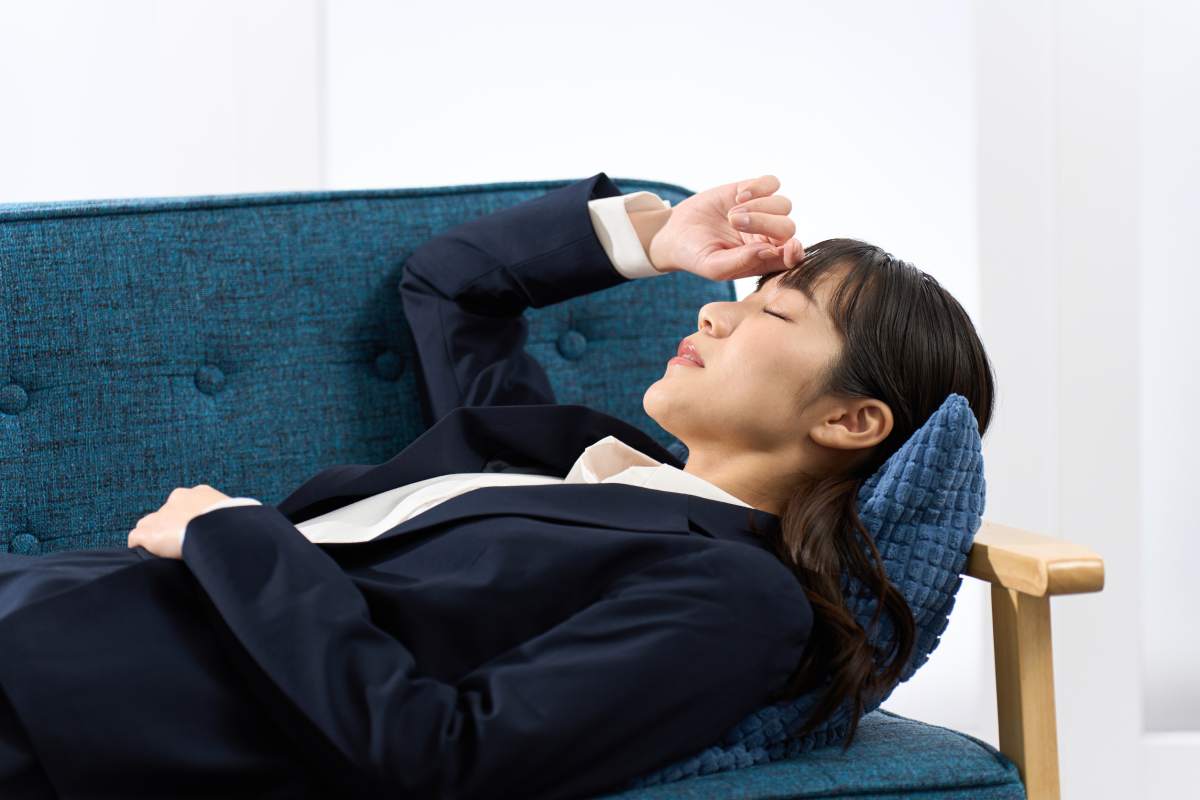Many people look forward to a nap to recharge during the day, yet it’s frustrating when you wake up feeling worse, especially if you have a headache. Post-nap headaches are surprisingly common and can be caused by several factors, ranging from poor sleep quality to underlying health conditions.
Understanding why this happens can help you avoid headaches in the future and ensure your naps are truly refreshing.
The UK Energy Crisis: Generous Ways to Help Your Elderly Neighbours This Winter
Resistance is Not Futile with the Correct Gloves
1. Disrupted Sleep Cycle
The way our bodies regulate sleep is governed by sleep cycles, which consist of different stages, including light sleep, deep sleep, and rapid eye movement (REM) sleep. Naps that interfere with these cycles can cause sleep inertia, a state of grogginess and disorientation that may also lead to headaches.
- Short naps (10-20 minutes): These naps are recommended because they help you recharge without entering the deeper stages of sleep. This reduces the risk of sleep inertia.
- Longer naps (60-90 minutes): During this period, your body may enter deep sleep. If you’re abruptly awakened during deep sleep or REM, you may feel disoriented, which can trigger headaches.
A nap that disrupts your sleep cycle could leave your brain feeling overstimulated or out of sync, leading to tension or cluster headaches.

2. Sleep Deprivation and Poor Sleep Quality
Paradoxically, sleep deprivation can both lead to and worsen post-nap headaches. A nap may seem like the perfect remedy when you haven’t been getting enough sleep. However, even a short nap might not fully resolve the sleep deficit if you are severely sleep-deprived. The result? A headache from the lingering exhaustion.
- Inconsistent sleep patterns: If you have irregular sleep schedules or often rely on naps to “catch up,” your body may struggle to regulate its sleep-wake cycle. This disruption could lead to grogginess and headaches.
- Poor quality sleep: If your nap is frequently interrupted or disturbed by noise, light, or discomfort, it may leave you feeling worse rather than refreshed. Fragmented sleep doesn’t allow your body to reach a state of restoration, which may contribute to post-nap headaches.
3. Dehydration
Dehydration is one of the most common causes of headaches, including after naps. When you’re asleep, especially during long naps, your body continues to lose water through sweat and breathing. If you haven’t had enough water during the day, this mild dehydration can be enough to cause discomfort.
- Solution: Drink a glass of water before and after your nap to ensure you stay hydrated. This simple habit can help prevent dehydration-related headaches.

4. Blood Sugar Drops
Napping for extended periods, especially in the afternoon, can cause your blood sugar levels to drop, leading to headaches. This is more common if you’ve skipped a meal or have gone a long time without eating before your nap. Low blood sugar, known as hypoglycemia, can trigger headaches, as well as dizziness and irritability.
- Solution: Have a light snack before your nap, especially if you’ve been fasting for a while. A small, balanced snack containing complex carbohydrates and protein can help stabilize your blood sugar and prevent a post-nap headache.
5. Posture and Sleeping Position
The way you position your body during a nap can also play a significant role in whether or not you wake up with a headache. Poor posture or an awkward sleeping position can strain your neck and shoulder muscles, which can then trigger tension headaches.
- Tension headaches: These occur when muscles in your neck, head, and shoulders become tight. If you nap in an awkward position, such as slumped on a couch or resting your head on an armrest, this could strain those muscles and lead to headaches.
- Solution: Use a proper pillow that supports your neck and head. If you’re prone to tension headaches, it’s better to nap in a reclining position rather than lying flat on a couch or chair.

6. Stress and Anxiety
Naps are supposed to help relieve stress, but if you’re already feeling anxious or overwhelmed, the opposite effect can occur. Chronic stress or underlying anxiety can trigger tension headaches, and naps don’t always resolve this issue. In fact, if you nap during stressful periods, you may wake up with more tension, especially if you haven’t properly relaxed your mind beforehand.
- Stress-induced headaches: Stress can cause your body to release chemicals that tighten muscles and affect blood flow, which can result in headaches. A quick nap may not be enough to alleviate these symptoms, leading to post-nap headaches.
- Solution: Try incorporating relaxation techniques like deep breathing, meditation, or stretching before napping. Reducing stress can lower your chances of waking up with a headache.
7. Oversleeping
While naps can be refreshing, sleeping for too long during the day may cause oversleeping, which is linked to headaches. Oversleeping, whether during the day or night, can throw off your body’s internal clock and cause grogginess and headaches.
- Sleep inertia and headaches: When you nap for longer than 90 minutes, you’re more likely to enter deeper stages of sleep. Waking up in the middle of deep sleep can lead to headaches, grogginess, and a feeling of sluggishness.
- Solution: Keep your naps short, ideally between 10-30 minutes, to avoid oversleeping. Short naps can provide a boost in alertness without disturbing your internal sleep patterns.

8. Underlying Health Conditions
If you consistently wake up with headaches after naps, it could be a sign of an underlying health issue, such as:
- Sleep apnea: This condition, where breathing is temporarily interrupted during sleep, can lead to poor sleep quality and headaches. Even if you only nap for a short period, sleep apnea could cause a headache due to interrupted breathing patterns.
- Migraines: People prone to migraines may find that napping triggers or worsens them. This could be due to disruptions in their sleep schedule, or the act of waking up during the wrong phase of the sleep cycle.
- Sinus issues: Blocked or inflamed sinuses, especially from allergies or infections, can lead to headaches after naps due to pressure changes while lying down.
If you suspect an underlying condition is causing your post-nap headaches, it may be helpful to consult a doctor for further evaluation and treatment options.
Conclusion: How to Prevent Post-Nap Headaches
While naps are intended to boost your energy and mood, they can sometimes have the opposite effect if they lead to headaches. Fortunately, there are steps you can take to minimize the likelihood of a post-nap headache:
- Limit nap duration: Keep naps to 10-30 minutes to avoid entering deep sleep and disrupting your sleep cycle.
- Stay hydrated: Drink water before and after your nap to avoid dehydration-related headaches.
- Maintain a proper sleep environment: Create a quiet, dark, and comfortable space to nap, and use proper neck and head support to avoid tension.
- Manage your stress: Practice relaxation techniques before your nap to reduce the chance of stress-induced headaches.
- Eat a light snack: Avoid blood sugar drops by having a healthy snack before napping.
If your headaches persist despite taking these precautions, consider discussing them with a healthcare professional to rule out any underlying health issues. By addressing the causes, you can enjoy refreshing naps without the discomfort of a headache.

